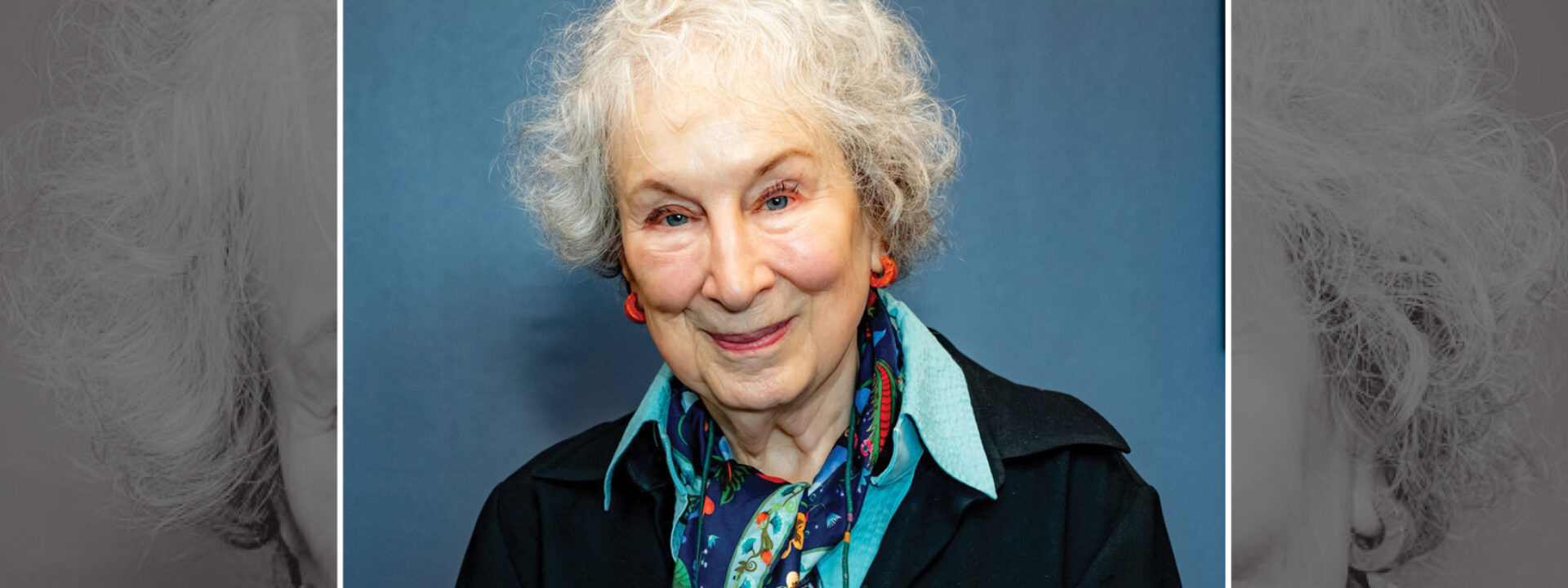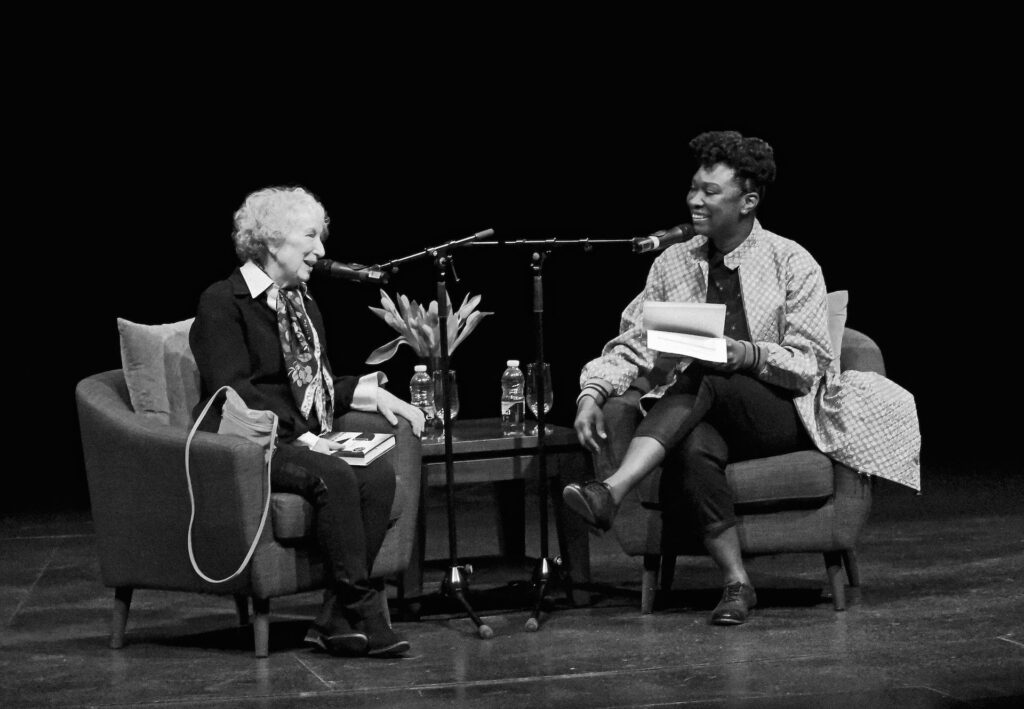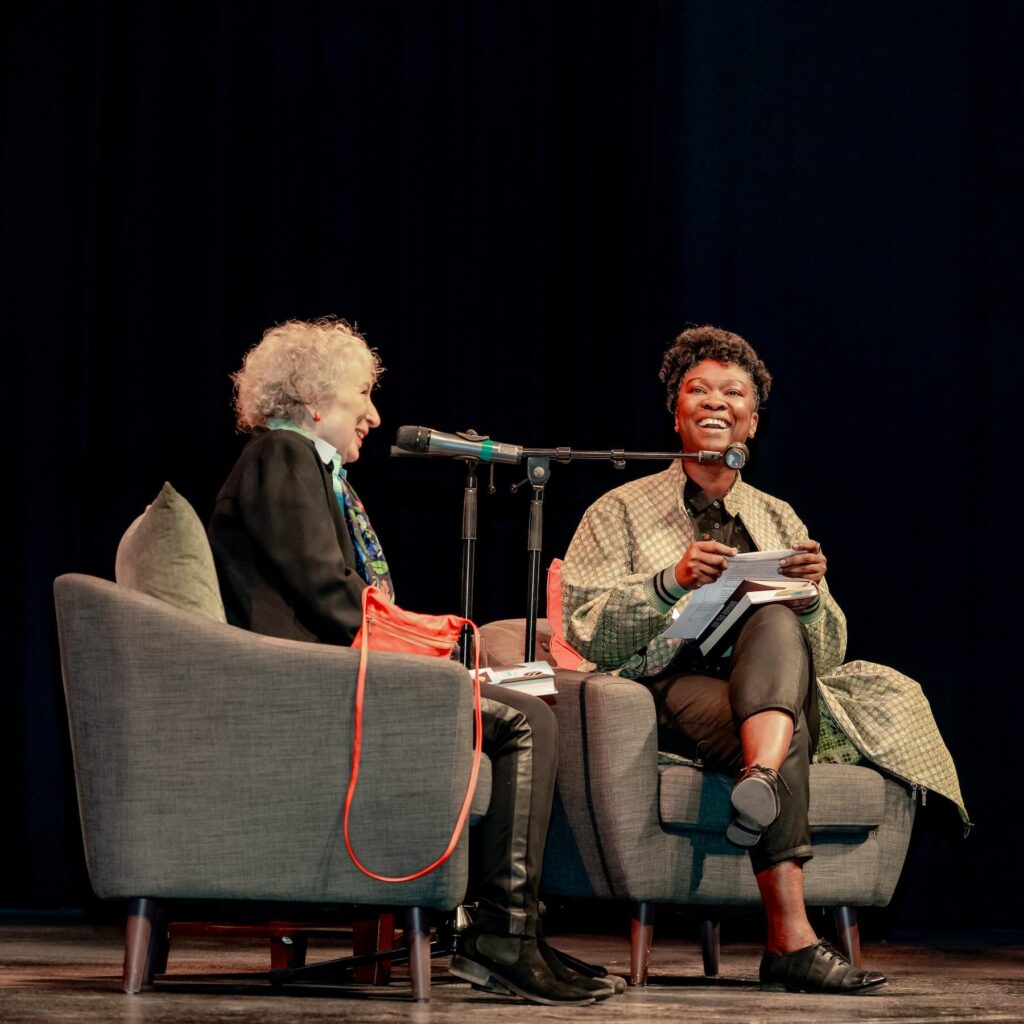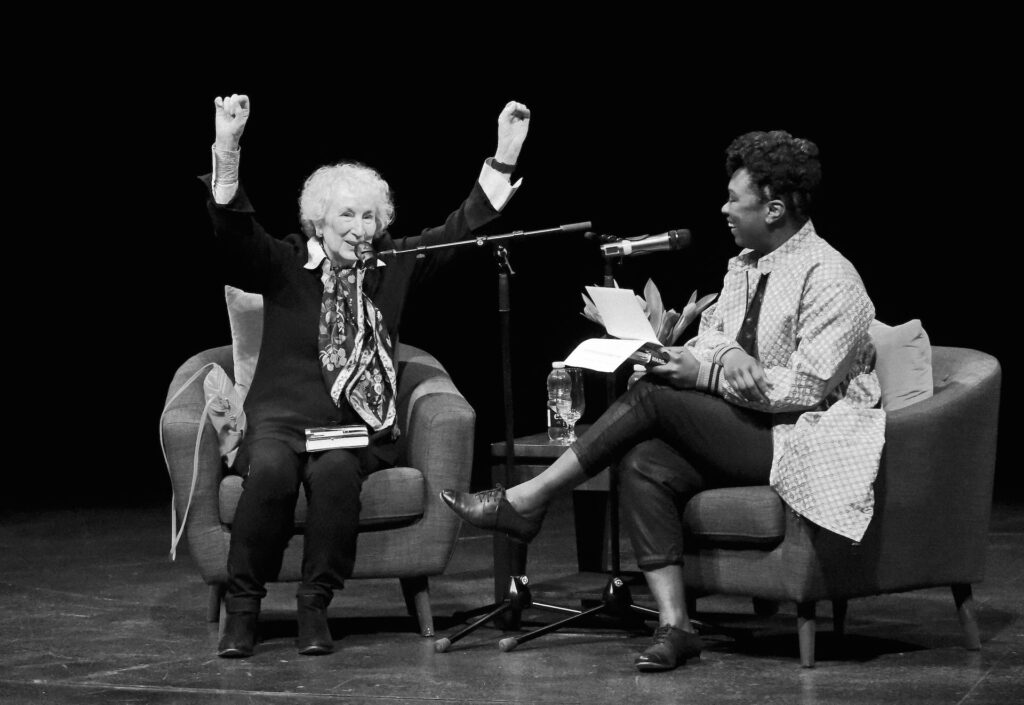Margaret Atwood kicks off gritLIT’s 20th festival

Celebrated Canadian author shares stories and wisdom with a sold-out crowd at Theatre Aquarius. gritLIT runs April 17-21.
As is fitting for one of Canada’s most celebrated and respected authors, the gritLIT audience assembled to hear Margaret Atwood speak hung on her every word.
She was witty, she was wise and she left her fans wanting more after an hour-long interview with novelist and poet Canisia Lubrin on Tuesday evening at Theatre Aquarius.
In a wide-ranging discussion, Atwood talked about being born in November 1939, just two months after the beginning of World War II (the diminutive author joked that she would be five-foot-nine if it hadn’t been for war rationing), the waves of feminism that she’s witnessed and researched, and how the French Revolution has a lot to say about political culture today.
On choosing the writer’s path, she said only a “lunatic” would consider it in 1950s Toronto.
“It did not inspire cries of joy from my family who thought I would be a very good botanist.”

ALL PHOTOS: Donna Waxman and Brent Perniac
Later, she said being a writer is a “chancy thing. It’s not like being a dentist, no disrespect to dentists.”
But it seems to have worked out just fine. Atwood is the author of more than 50 books of fiction, poetry and critical essays. Her novels include Cat’s Eye, The Robber Bride, Alias Grace, The Blind Assassin, the MaddAddam trilogy, The Handmaid’s Tale, and its 2019 sequel, The Testaments.
Atwood’s many awards include two Booker Prizes, the Arthur C. Clarke Award, the Governor General’s Award, the Franz Kafka Prize, and lifetime achievement awards from the National Book Critics and PEN Center USA. In 2019, she was made a member of the Order of the Companions of Honour for services to literature.
Her latest work is Babes in the Woods, a collection of 15 short stories released in 2023. When Lubrin suggested Atwood has never been funnier than she is in that book, Atwood responded: “You have much more latitude when you are O-L-D. I guess it’s because you don’t have a career in front of you.”
Atwood’s dystopian The Handmaid’s Tale, released in 1985, depicts a patriarchal, totalitarian future in the U.S., It was adapted into a hit series for Hulu and has won eight Primetime Emmy Awards, including outstanding drama series, along with a Golden Globe Award for best TV drama.
She told her audience that the reception to the novel in what was then East Germany and West Germany was telling.
People in West Germany, like much of Europe, “did not believe that the U.S. could ever go in that direction. It was a beacon of light and democracy. They looked to the U.S. for hope.”
But in East Germany, the reaction was intense. It depicted real life in that country, where no one could be trusted and the regime could come for you at any time.
There is reason for celebration that at age 84, a woman who has been contemplating the rights of women throughout her career, has never been more relevant than she is right now.
In the last few years, she has written deeply thoughtful features about the science of sex and gender for Scientific American, and abortion rights for The Atlantic. She frequently tackles climate change and politics on X, where she has 1.9 million followers. (As many abandon the platform, Atwood says she’s not sure anyone sees her X posts anymore, so she’s set up an account on the upstart Bluesky.)
On Tuesday, Atwood said people may feel they have a direct connection to their favourite writers through social media “but authors have always invented personas to communicate through. It’s no different now.”

Atwood was a fitting kick-off to the 20th anniversary of Hamilton’s literary festival. The four-day event brings together writers from across Canada for an intimate celebration of both established and up-coming voices.
It includes readings, interviews, panel discussions, workshops and social events, as well as a number of virtual events.
Lubrin will be featured at gritLIT on Saturday, April 20 in a presentation called The Poetics of Resistance.
She is author of Code Noir, her time-defying debut work of fiction that explores Black life through what Lubrin has described as metamorphoses, drafts, or stories. Atwood called them “riffs,” which Lubrin says she might adopt as a description.
“You’ll see on the cover (the marketing people) didn’t know what to call it,” Lubrin said, when Atwood held up Code Noir and insisted Lubrin talk about the book.
The title comes from French King Louis XVI’s Le Code Noir from 1685. Its 59 articles governed the lives of both free and enslaved Black women and men in France and its colonies. Each article is linked to a story in Lubrin’s book.
Other marquee events for gritLIT included former CBC News anchor Peter Mansbridge on April 18 and Hamilton musician and artist Tom Wilson on April 19 talking about Beautiful Scars, the upcoming musical at Theatre Aquarius that is based on his bestselling memoir.
Hamilton Writes, also on April 19, will showcase five Hamilton writers: Lishai Peel, Hamilton's first Poet in Place, Gary Barwin (Imagining, Imagining), Dannabang Kuwabong (Sargasso Sea Scrolls), David Neil Lee (The Great Outer Dark), and George Matuvi (The War As I Saw It).
Tickets for all events, along with weekend passes, are available here.















